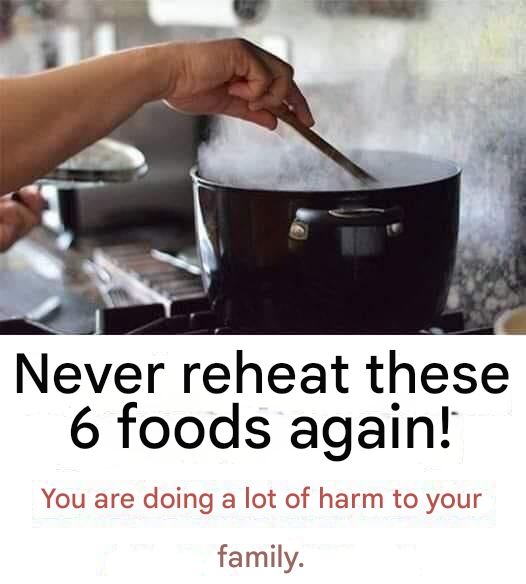ADVERTISEMENT
8. Sauces and stews with cream or milk
Sauces or stews that contain dairy products, such as cream or milk, can separate when reheated, which not only affects their texture, but can also create an environment conducive to the development of bacteria if not properly refrigerated. Creams often coagulate and sauces can lose their creamy consistency when reheated.
Tip: When reheating these dishes, do so over low heat and stirring constantly to prevent the milk or cream from separating.
9. Reheated oils
Reheating oils such as olive, corn or sunflower oil can be problematic, as oils subjected to high temperatures repeatedly can release toxic compounds such as acrylamide, which has been linked to cancer risks. These oils can lose their healthy properties and produce harmful substances if reheated multiple times.
Tip: Avoid reusing or reheating oils already used for frying or cooking. It is best to use small amounts
Add fresh oil every time.
Additional dangers of reheating food
Improper or repeated reheating of food can cause it to lose nutritional value and, in some cases, can be a health hazard. Bacteria such as Escherichia coli, Salmonella or Listeria can grow in poorly refrigerated or improperly heated food. Reheated food can also lose its original texture and flavor, becoming less appetizing and less nutritious.
Microwaves can be very useful, but it is important to be careful about the foods you reheat. Avoid those that become dangerous when reheated and always make sure you store your meals properly. If you have any doubts about the safety of a reheated food, it is best not to take any chances.
